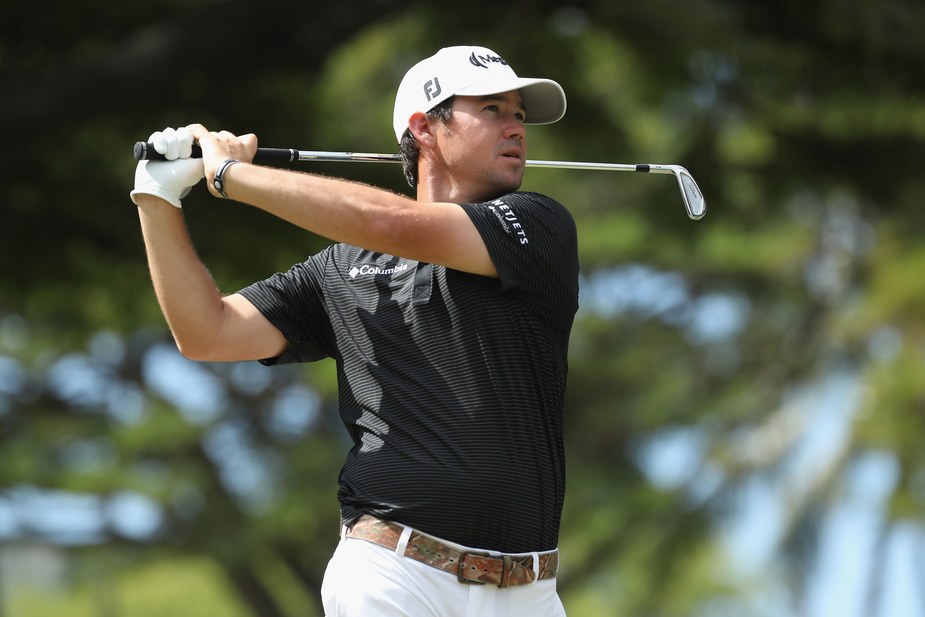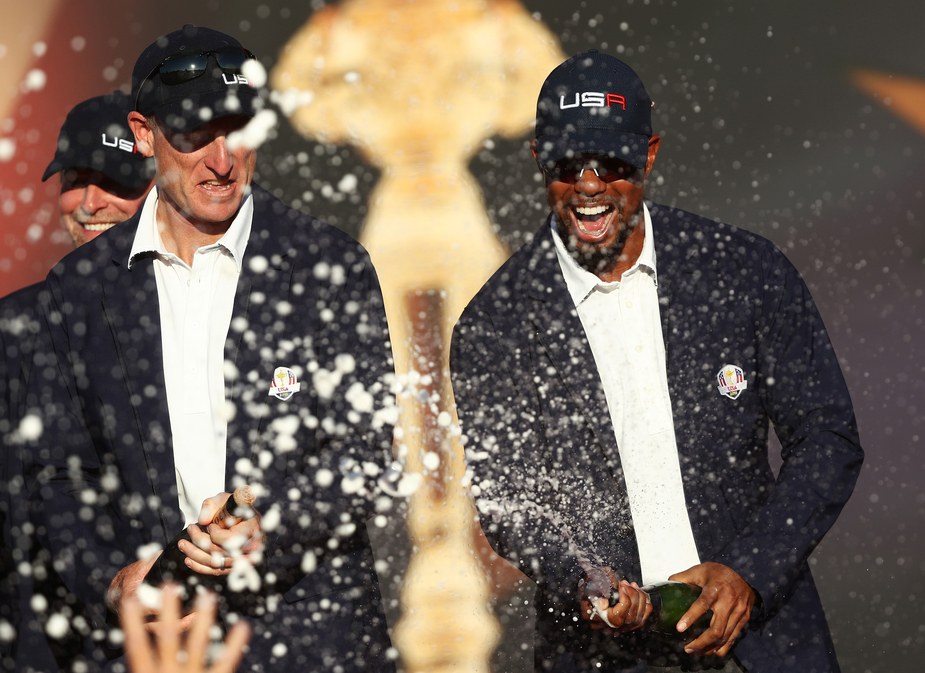The Ryder Cup is still more than eight months away and yet it’s all some Americans can think about.
Chubby Chandler, the long-time British manager who has represented European Ryder Cup stars Rory McIlroy, Graeme McDowell, Lee Westwood and Darren Clarke, has a theory about why Europe was so dominant for so long in the Ryder Cup.
“Simple really,” Chandler said on the eve of the 2016 matches at Hazeltine National. “The Americans were late to the table figuring out that they had to be all-in to beat Europe, regardless of world rankings. I think now they get it – or at least they’re starting to get it.”
Indeed, Hazeltine proved that the American players are finally all-in on the Ryder Cup. They played with passion and bravado and, for once, there was genuine camaraderie in the team room. No ping-pong just to pass the time. The players truly enjoyed hanging out with one another.
The importance of the Ryder Cup to Americans was made clear again this past weekend, when Brian Harman, currently in sixth place on the 2018 points list, told Golf Digest’s Brian Wacker that he had changed his schedule this year to make sure he’s fresh during the final weeks of the race to make the team – either via the points list or as one of Jim Furyk’s captain’s picks.
For the second straight week, Harman played in Sunday’s final group, this time at the Sony Open in Hawaii. Even though he dropped to a tie for fourth, he walked away a little bit closer in his quest to be in Paris come September.

Harman isn’t going to be the only one who has a trip to France on his mind. You can expect to hear similar refrains throughout 2018 from most any American within shouting distance of the top-eight on the points list, their motivation clear and strong. (And unlike in the past, they’ll all mean it.)
The notion that the American players really and truly were sick of losing the Ryder Cup became evident to me early in 2016 during a TV interview Mark Rolfing did with Justin Thomas. At the time, Thomas was a 22-year-old who had just finished his first season on tour and had recently won his first US PGA Tour event – the CIMB Classic in Malaysia. When Rolfing asked the standard, What are your goals for this year? question, he was stunned by the answer.
“I want to play on a winning Ryder Cup team,” Thomas said. “Not just make the team, but be part of a winning team.”
Rolfing was so surprised he actually re-asked the question, reminding Thomas about the four Major championships. Thomas, son of a PGA of America professional who attended three Ryder Cups as a kid, nodded and said sure he’d love to win a Major (he would a year later). Still, if he could do only one thing in 2016 it would be to help the US win back the Ryder Cup. He didn’t make that team, but his passion for an event he hasn’t even played in yet (he’s a lock for Furyk’s 2018 team) showed the new attitude many have towards the competition.
RELATED: What’s driving the remarkable resurgence of American team golf?
For years, if you asked an American player what he fantasised about as a kid standing over a putt alone at his home course in the gloaming before heading home, the answer was always making it to win the Masters or the US Open. But for most Europeans, the answer was the Open Championship – or the Ryder Cup.
“For me the Ryder Cup was always the biggest, most important event in golf,” said Justin Rose, the 2013 US Open champion. “Watching it on TV as a boy, I couldn’t imagine anything more thrilling than being a part of it as a player.”
“Sure, you dreamed of winning a Major, of course,” said Danny Willett, the 2016 Masters champion, “but the Ryder Cup was absolutely massive. When I won at Augusta one of my first thoughts was, ‘OK, now I know I’m on the Ryder Cup team. No need to worry about it going forward.’”
“I’d play for nothing. For me, as a kid, the two events I most wanted to play and win were the Masters and the Ryder Cup.” — Jordan Spieth
McIlroy was actually an exception to the European rule. He saw the Ryder Cup as “a nice exhibition”, until he made the team as a 21-year-old in 2010. “Took me about 15 minutes to realise I’d gotten it wrong,” he said, smiling. “There’s nothing like it, there’s nothing I look forward to more.”
Only recently have American players craved playing in the Ryder Cup as youngsters. It’s worth remembering that in 1999 many players publicly demanded that the PGA of America share some of its Ryder Cup riches with them. A compromise, in which the PGA contributed money to each player’s charity was finally reached.
Now? “I think it’s cool that they give the money to our charities,” said Jordan Spieth, already a two-time Ryder Cup participant at age 24. “But I’d play for nothing. For me, as a kid, the two events I most wanted to play and win were the Masters and the Ryder Cup.”
Spieth’s partner in both his Ryder Cup appearances was Patrick Reed (pictured, top), who grew up playing in a Ryder Cup-style event as a junior in Texas. “I loved playing in it,” he said. “It made me want to part of the real thing someday from a very young age.”

Tiger Woods, who was part of that ’99 team, was always a reluctant Ryder Cup player. He knew he had to show up to play for his country, but it didn’t make him happy. That was reflected in his Ryder Cup playing record: 13-17-3, stunning, given his record when playing individually.
In 2006, when someone asked Woods if he had any theories about his record, Woods shrugged and said, “What was Jack’s Ryder Cup record?”
His point wasn’t that Nicklaus didn’t have a good record – Jack was 17-8-1 playing mostly in the pre-European era – but that most people would have to look up those numbers, while knowing Nicklaus had won 18 Majors off the top of their heads.
“You couldn’t get him off the phone. One day, I finally said to him, ‘Tiger, I gotta go. You need a hobby.’” — Brandt Snedeker
By 2016, when he served as one of Davis Love III’s vice-captains at Hazeltine, Woods – whose Ryder Cup teams were 1-6 – had become obsessed with helping the US win. Prior to the matches, he was in constant contact with Love and the players – especially after the first eight had qualified on the points system. “You couldn’t get him off the phone,” Brandt Snedeker said. “One day, I finally said to him, ‘Tiger, I gotta go. You need a hobby.’”
Once, the Ryder Cup was little more than a hobby – a “nice exhibition” to American players as they grew up. Now, the current generation – Spieth, Reed, Thomas, Harman and others – clearly feels differently.
So brace yourselves. We’re about to hear a regular chorus of “It’s a Ryder Cup year, so I’m trying to play well to make the team” refrains from the Americans in the coming months. Which should make Furyk – and future American captains, Woods among them – smile.
